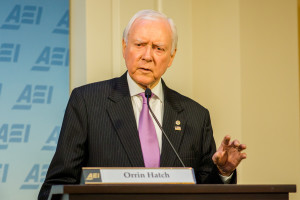 The month of September brought a long list of union misdeeds. Here’s the Labor Department’s worst of the worst:
The month of September brought a long list of union misdeeds. Here’s the Labor Department’s worst of the worst:
- On September 25th, 2017, in the Franklin County, Ohio Court of Common Pleas, Michael Mathis, former Treasurer of Brotherhood of Locomotive Engineers (BLE) Division 34 (located in Columbus, Ohio), pled guilty to one count of theft in the amount of $5,784. He was immediately sentenced to 60 days of incarceration (suspended) and one year of probation. He was also ordered to pay $5,784 in restitution.
- On September 21st, 2017, in the United States District Court for the Northern District of Illinois, Bobby Buford, former President of United Auto Workers (UAW) Local 2419 (located in Danville, Ill.), was sentenced to 21 months of incarceration and three years of supervised release, and he was ordered to pay restitution of $129,723 and a $100 special assessment. On November 10th, 2016, Buford pled guilty to one count of mail fraud, in violation of 18 U.S.C. 1341, for diverting over $129,723 in unions funds for personal use.
- On September 14th, 2017, in the United States District Court for the Western District of Pennsylvania, Raymond C. Ventrone, former business manager of International Brotherhood of Boilermakers Local 154 (located in Pittsburgh, Pa.) pled guilty to one count of embezzling union funds in the approximate amount of $1,499,000, in violation of 29 U.S.C. 501(c), and one count of tax evasion in the approximate amount of $265,343, in violation of 26 U.S.C. 7201.
- On September 12th, 2017, in the United States District Court for the Western District of Pennsylvania, Marianne Rodacy, former Financial-Recording Secretary of United Steelworkers Local 10-53-G (located in Charleroi, Pa.), was indicted on one count of embezzling $13,109 in union funds, in violation of 29 U.S.C. 501(c).
- On September 7th, 2017, in the Jefferson County, New York District Court, Ronald G. Watson, former Treasurer of International Association of Fire Fighters (IAFF) Local 105F (located in Fort Drum, N.Y.), pled guilty to criminal possession of a forged instrument in the third degree. He was then sentenced to one year of conditional discharge and was ordered to pay $30,000 in restitution within 10 days.
- On September 6th, 2017, in the United States District Court for the Middle District of Pennsylvania, Michael Evans and William Uggiano, former President and former Treasurer, respectively, of American Federation of Government Employees (AFGE) Local 1699 (located in Wilkes-Barre, Pa.), both pled guilty to one count of conspiracy to commit bank fraud, in violation of 18 U.S.C. 1349.
Come back next week for more rackets!







